What is Islamic finance?
Islamic finance, or Shari’a-compliant banking and finance, is a system that follows the principles of Islamic law (Sharia). Islamic finance is based on ethical and moral principles that promote fairness, justice, and social welfare. Islamic finance is considered beneficial for overall economic growth.
Bahrain, a global Islamic finance pioneer
Bahrain is recognized as the global leader in Islamic finance, ranking 2nd in MENA and 4th globally for Islamic finance development (ICD 2021). We set the benchmark early for Islamic banking regulation by establishing the Bahrain Islamic Bank in 1978, and have nurtured the concepts, rules, and standards of Shari’a banking compliance in Islamic banks ever since. In this way, we are able to cater to the needs of both mainstream Islamic finance and the new breed of FinTech entrepreneurs who offer Shari’a-compliant products. Our continued focus on innovation and customer service has made Bahrain a top destination for Islamic finance development.
An unrivalled knowledge hub
Bahrain has the highest concentration of Islamic finance institutions in the region: 11 wholesale Islamic banks and 6 retail Islamic banks. A highly connected ecosystem, our expertise spans every area of Islamic financing, from asset management and Sukuk issuance to Shari’a-compliant insurance and reinsurance.
A growing Takaful industry
Bahrain, currently home to 6 Takaful firms and 2 Retakaful firms, is the ideal jurisdiction for the industry. The Central Bank of Bahrain has also implemented the new Takaful model which enhances solvency status assessment of these firms.
Largest Islamic finance market in the region
Total Islamic banking assets held in Bahrain stood at USD 34.6bn as of 2021, making it one of the region’s largest Islamic finance and banking markets.
An innovative government
The Central Bank of Bahrain is continuously implementing new initiatives and policy tools to further develop Bahrain’s standing in Islamic finance, most recently: a new Takaful model and a new Shari’a-compliant Wakalah investment tool.
Bahrain is home to the region’s largest concentration of Islamic finance institutions that deal in almost every area of Islamic finance and Islamic products. We are proud to rank 3rd in MENA and 6th globally for Islamic FinTech, as per the 2022 Global Islamic FinTech Report.
Who’s Here:

“When you want to create a bank, first of all you have to think about the law, the regulator, the staff, if the country is open and if I can transfer my profits. All these things are in Bahrain.”
More on Islamic finance
Islamic finance prohibits interest, gambling, uncertainty, and investments in forbidden industries. Instead of interest, it focuses on partnerships and profit-sharing and encourages ethical investments that benefit society, such as healthcare and renewable energy.
Fundamental principles of Islamic finance include:
- Prohibition of Riba (Interest): Islamic finance prohibits charging or paying interest. Instead, it promotes risk-sharing and profit-sharing arrangements. Lending and investment activities must be based on partnerships, profit-sharing, or asset-based transactions.
- Prohibition of Gharar (Uncertainty): Islamic finance discourages transactions involving excessive uncertainty or ambiguity. Contracts must be transparent, and all parties should clearly understand the terms and conditions.
- Prohibition of Haram (Prohibited) Activities: Islamic finance avoids investments in industries that are considered unethical or prohibited in Islam, such as alcohol, pork, gambling, and certain types of entertainment.
- Promotion of Ethical Investments: Islamic finance encourages investments in socially responsible projects and activities that benefit society. Investments in healthcare, education, renewable energy, and infrastructure are considered favorable.




